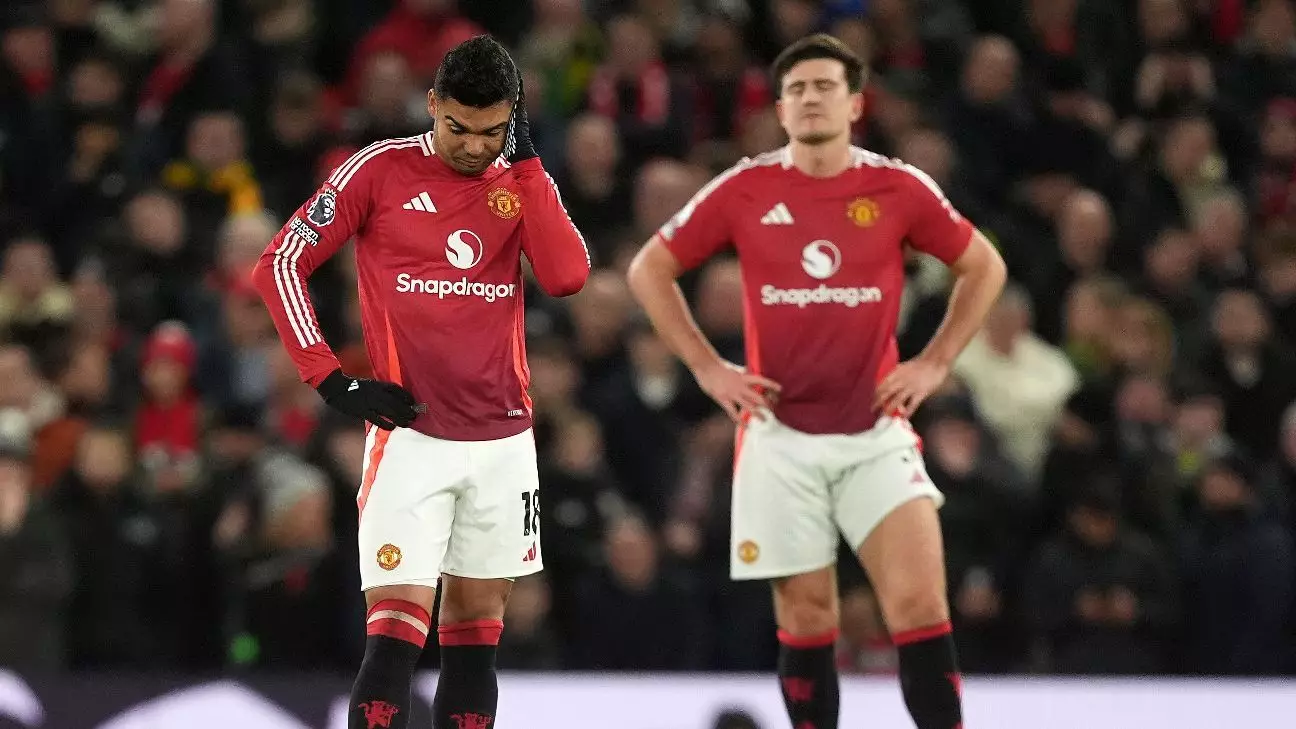Manchester United, a club once synonymous with success and glory, finds itself engulfed in turmoil as the discontent among supporters grows louder. The recent 2-0 defeat to Newcastle United exposed cracks within the team and its management, propelling the situation to a boiling point. As supporters jeered during and after the match at Old Trafford, it became evident that frustrations have reached a tipping point. The failure to secure three points against Newcastle not only marked the fourth consecutive defeat but also left the club sitting precariously on the edge of the relegation zone, triggering concerns previously thought unthinkable for such a storied institution.
The first half against Newcastle was nothing short of alarming, with Manchester United conceding two early goals and displaying a lackluster performance that infuriated fans. The decision to substitute Joshua Zirkzee, a recent signing from Bologna, became the focal point of the crowd’s ire. In a match where all 11 players underperformed, it was Zirkzee who emerged as the scapegoat, amplified by the apparent impatience of the supporters who overwhelmingly cheered his departure. Such reactions highlight the current environment at Old Trafford, where even minor events can ignite a sense of collective frustration.
As the damning statistics accumulate, they present a sobering narrative for Manchester United. For the first time since the 1978-79 season, the club has stumbled to three consecutive league defeats at home. With six losses in their last eight matches, the urgency for change grows more palpable. The looming specter of relegation has transitioned from a distant fear to a pressing reality, as the team finds itself merely seven points clear of the drop zone heading into 2025. Unquestionably, the weight of expectation has never felt heavier, not just for the players on the pitch but also for the managerial staff.
Ruben Amorim, who stepped in to replace Erik ten Hag not long ago, is now under scrutiny as questions of managerial competence arise. With public sentiment shifting against him, the coach faces criticism not only for his team’s lack of cohesive play but also for strategic decisions that seem increasingly uninspired. Despite the initial optimism surrounding his appointment, the reality of a dismal December, littered with defeats, threatens to undermine his tenure. The prospect of ending a decade-long winless streak against Newcastle only adds salt to the wounds of an already beleaguered fanbase.
Amid concerns about relegation and tactical failures, the issue of blame creates further tension. While Amorim claims responsibility for the squad’s shortcomings, many observers argue that the players must shoulder their share of the burden. The team’s failure to adapt to challenges on the pitch — such as allowing Alexander Isak ample space for a header, or Joelinton easily overpowering defenders — raises questions about individual performance as well as collective resolve. The failure to execute basic football fundamentals implies deeper-rooted issues that may transcend tactical frameworks.
Amorim’s attempts to shield his players from criticism suggest a reluctance to confront uncomfortable truths that might influence team dynamics. The hesitation to evaluate whether his 3-4-3 system is effective indicates a broader struggle to cultivate a robust identity amidst persistent failure. While he maintains that a constant shift in tactics may yield worse results, one must ponder whether a lack of adaptability is allowing opponents to exploit vulnerabilities too easily.
As Manchester United prepares for a challenging trip to face league leaders Liverpool, the pressure intensifies. A loss at Anfield would not only deepen the current crisis but could potentially further exacerbate the discord amongst the fanbase and players. Amorim has attempted to instill a sense of resilience, but with mounting losses further shattering confidence, the likelihood of an immediate turnaround feels remote.
For a club with aspirations to reclaim its past glory, the current trajectory presents a daunting challenge. The spiraling cycle of despair raises critical questions about the future of Manchester United and what it must do to rise from its ashes. The ongoing sentiment among supporters reflects a yearning for revival that remains conspicuously absent. As the team grapples with this period of crisis, only time will reveal whether they can transform their fortunes or remain marooned in a cycle of disappointment.

